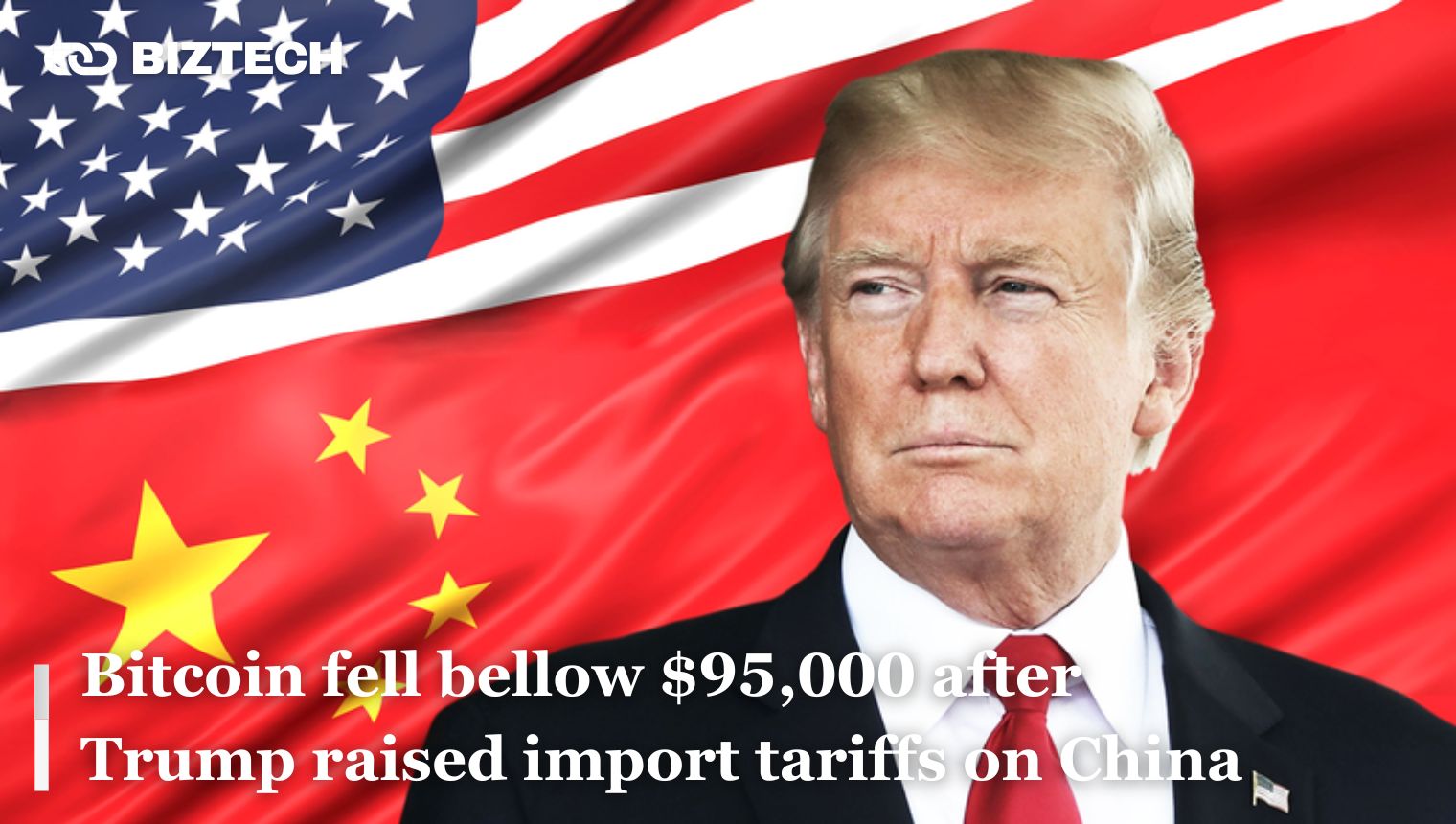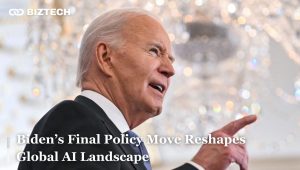Stay connected with BizTech Community—follow us on Instagram and Facebook for the latest news and reviews delivered straight to you.
Trade tensions between the United States and many major countries, including China, Canada, and Mexico, have caused widespread market anxiety, including in the cryptocurrency sector.
The most recent policy implemented by the US government under President Donald Trump in early February 2025, particularly the imposition of additional import tariffs, has sparked a range of reactions in financial markets, including a significant drop in the price of Bitcoin (BTC) and other crypto assets.
Tariff Policy and Its Impact on Global Markets
On February 1, 2025, President Trump announced the application of an additional 25% tariff on Canadian and Mexican imports, as well as a 10% tariff on Chinese goods. This policy was developed in response to the crisis of illegal immigration and drug trafficking, particularly fentanyl, which, according to the US administration, is mostly imported through these three countries.
“This action is necessary to ensure that Mexico, Canada, and China fulfil their commitments to stop illegal immigration and the flow of dangerous drugs into the United States,” said the White House.

However, this approach’s effects have spread across the global economic sector. The financial markets, especially cryptocurrency, responded quickly with considerable volatility. Bitcoin, which had earlier crossed the US$100,000 barrier, plunged to US$91.500, its lowest point since late January 2025. Although it momentarily recovered above US$95.000, this movement is viewed as a sign of increased market instability.
Massive liquidation and investor panic

According to Cointelegraph, Almost $2 billion was liquidated within 24 hours of the tariff proposal’s announcement it’s more liquidations than both the COVID crash and FTX implosion. This indicates the panic among crypto investors seeking to protect their investments from market volatility.
This large liquidation also shows that the cryptocurrency market, which is notorious for being sensitive to global sentiment, is extremely vulnerable to changes in economic policy.
Reactions from Crypto Industry Players
Trump’s tariff stance has stirred controversy among cryptocurrency analysts and players. Jeff Park, Head of Alpha Strategy at Bitwise Invest, voiced concern that a prolonged tariff war could have a negative influence on Bitcoin values in the long run. “Tariff conflicts are more than just a temporary issue.”This could be a detrimental catalyst for the crypto market,” the economist said.
Dan Gambardello, the founder of Crypto Capital Venture, has a different take. According to him, the assumption that tariff policies will break the cycle of Bitcoin price hikes is overdone. “Large institutions like BlackRock continue to accumulate Bitcoin and Ethereum, showing that interest in cryptocurrencies remains strong despite trade tensions,” says Gambardello.
In the midst of global uncertainty, the cryptocurrency market is volatile.
Trade conflicts between the United States, Canada, Mexico, and China complicate the global economic situation. The notoriously volatile cryptocurrency market is becoming increasingly subject to negative sentiment.
Although Bitcoin’s price has momentarily dipped, many observers believe the cryptocurrency industry is resilient enough to withstand and even grow in the face of uncertainty.
The Future of Bitcoin Amid Economic Tensions
The future of Bitcoin and other cryptocurrencies is increasingly dependent on the industry’s capacity to react to governmental changes and global economic trends (especially regarding The Fed Interest Rate Decision). The main question is whether Bitcoin will recover and reach a new all-time high (ATH), or if it will endure a deeper decline, perhaps triggering a crypto market crisis.
Meanwhile, investors and industry participants continue to follow changes in global trade rules and their influence on the market. Tensions between the United States and other major countries, particularly over import taxes, are expected to continue to impact market sentiment in the coming months.
Conclusion
The global trade tensions sparked by President Trump’s tariff measures have caused a wave of concern in the cryptocurrency market. Although Bitcoin prices were under pressure, institutional interest in crypto assets remained high, predicting a possible rebound. However, extreme volatility and enormous liquidations remind us that the cryptocurrency market is still sensitive to changes in global economic policies. Only time will tell if Bitcoin and other cryptocurrencies can survive and prosper in the midst of this turmoil.






